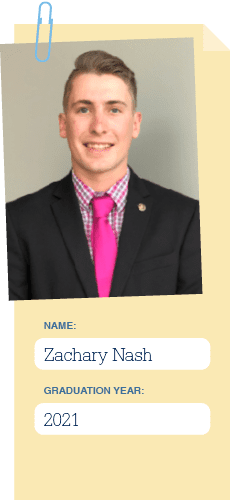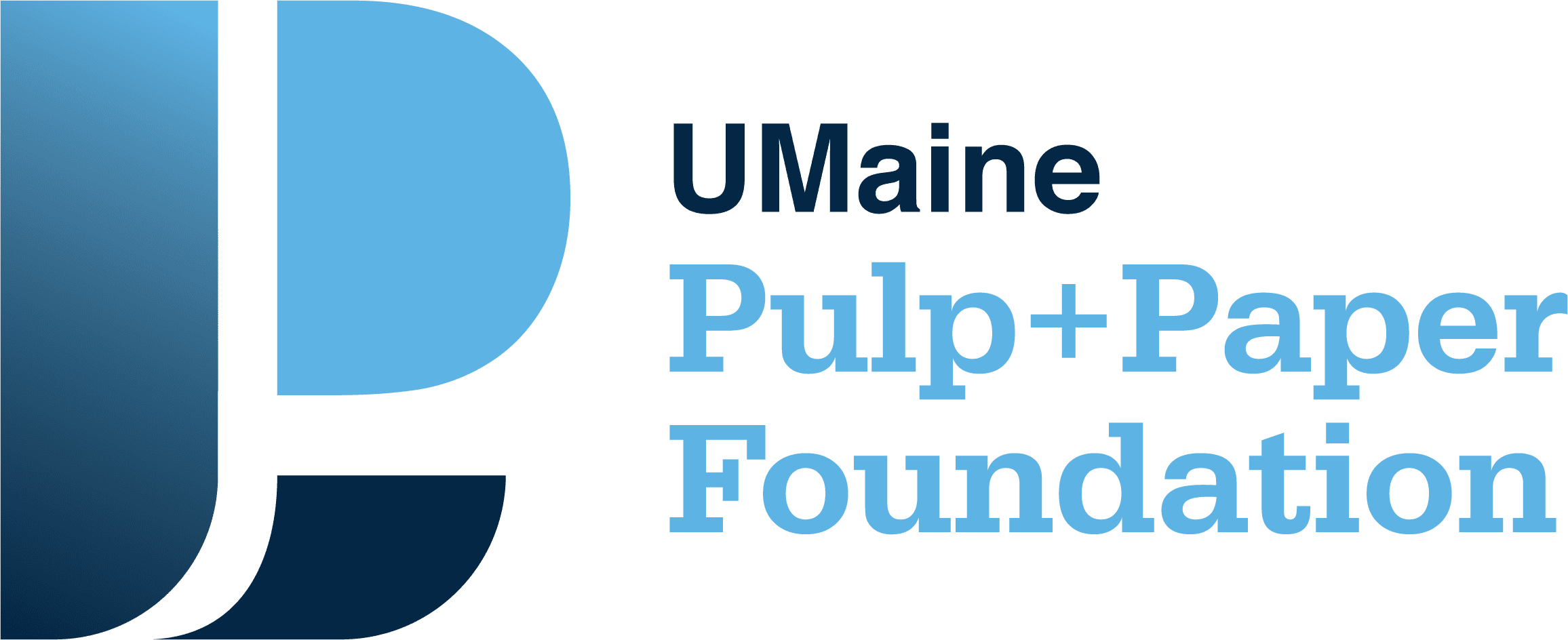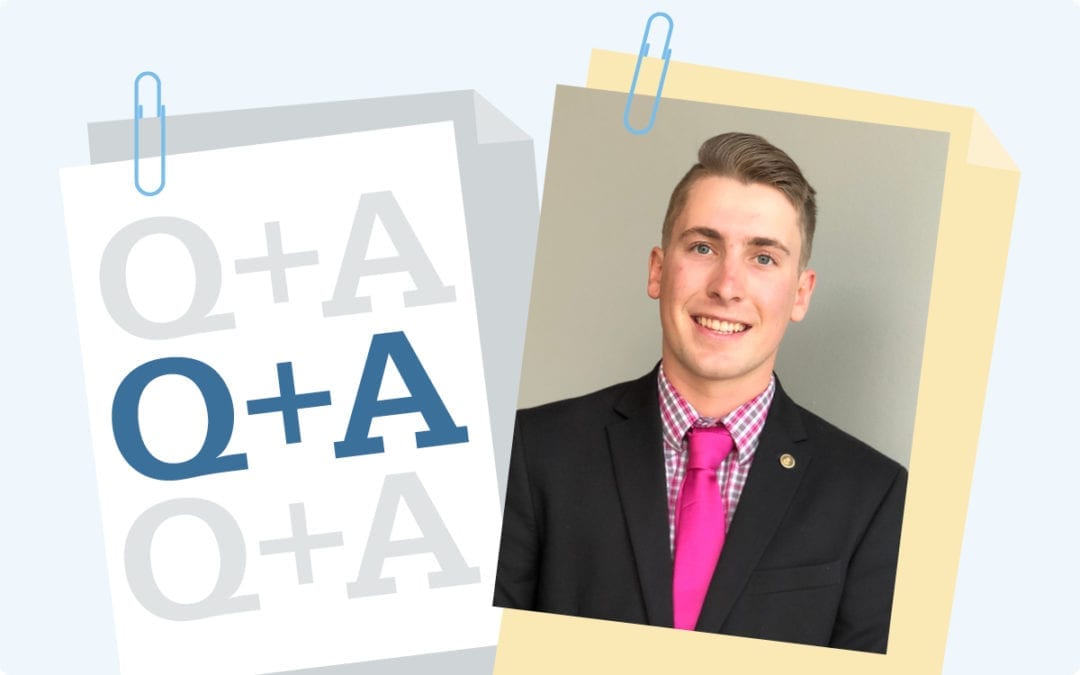
Q: How did you discover the University of Maine Pulp and Paper Foundation and what attracted you to it?
A: I first discovered the University of Maine Pulp and Paper Foundation during sophomore year in college. I had heard mentions of it earlier than that, but it truly began to pique my interest when I noticed that many of my closest, most highly motivated, friends were part of the Foundation. I began to ask these friends a variety of questions ranging from “How much of a time commitment is this?” to “How do they get these highly successful individuals to come back year after year to talk to students?”
Q: How did you know the program was the right fit for you?
A: When I realized how flexible the program is, I knew it was the right fit for me. As an Engineering student, a Brother in the Sigma Phi Epsilon Fraternity (known by many as SigEp) and a part-time worker throughout the school year, I was not looking to take on another large time commitment. However, the more involved I become with UMPPF, the more I find myself trying to devote more of my time to it.
Q: What was top of mind when considering the program?
A: One of the largest draws to the program was the networking prowess that came with being a member. Many of my fellow Brothers were members of the program. Around our house, I would hear them talk about their experiences and all the new people they would meet at UMPPF events. As someone who strives to have a continuously expanding network, I knew this in itself was a great opportunity. All of this on top of the fact that the Foundation also offers a ridiculous 100% job placement rate, a large scholarship, and free food about once a month.
Q: What is your favorite thing about UMPPF?
A: My favorite thing about UMPPF is the people. Knowing that Jen and Carrie have an open office policy is a huge plus. Being able to swing into Jenness Hall to run ideas by two genuine people who are always willing to listen is a nice pause to the day. This attitude from the top of the program is absorbed well by the students who make up the undergraduate portion of the Foundation. This can be observed by looking at the grouping of students at the tables at each event. You will often notice that most of the students try to sit with different people each time. In my opinion, this is the only way to get the best experience as we all have so much to learn from one another.
Q: What do you think are common misconceptions about the industry that you were surprised to learn weren’t true?
A: One of the things that truly surprised me was the amount of opportunity in the Pulp and Paper Industry. Growing up, I would hear that the paper mills in Maine were a dying breed. Although the quantity has decreased, it does not mean that the quality has. Each mill is a subset of its own community. This community is needed for the mill to succeed. The community is made up of several thousand workers, from millwrights to contractors to the foresters surveying the North Maine Woods.
Q: Describe your co-op experience.
A: I have been fortunate enough to have had three opportunities with three different companies during my undergraduate summers. All three of these experiences have shaped me into the person that I am today.
My first summer I was a laborer for Sargent Corporation. The work may not be the most glamorous, but I have all the respect in the world for those who get up every morning and grind through the dog days of summer. The camaraderie formed working with a crew is second-to-none. My most rewarding moment wasn’t the paychecks or the free weekends. It came on the last day of my internship when I was able to shake the hands of each of the crew members and they thanked me for the work that I had done. That moment taught me about having pride in delivering a quality product.
My second summer I had the opportunity to perform as a Field Engineer for Cianbro. I was able to have a meaningful role in our project to build Ethylene Cracking Units for Royal Dutch Shell’s facility in Monaca, PA. I developed lasting relationships with mentors that I have remained in contact with on a weekly basis.
My third internship started in late November 2019 with ND Paper at the Old Town mill and after eight months, I’ve become a full-time employee. The responsibility that I have been tasked with handling is very humbling and has made me not afraid to ask questions. Asking questions is a must to learn. Many hours of reading and talking with respected veterans of the mill has allowed me to perform tasks I never would have imagined.
Q: If you could talk with a graduate of the program, what would you want to know?
A: I would ask them what they would have done differently. “Hindsight is 20/20” states that clarity comes from reflecting on an experience. So why not use this clarity gained from others to help you continuously improve your path forward?
Q: If one of your friends were considering UMPPF, what would you tell them?
A: I would first mention the scholarships offered to get their attention. Then I would talk to them about the networking and professionalism that you can gain from the Foundation. Not only do these help you succeed in your career, but they are often fun experiences for all involved. I would tell them to go into all events with an open mind and try to meet as many new people as you can. You never know the valuable lessons that everyone can teach you or that you can teach them.
Q: How do you feel about your future in the industry?
A: After being with ND Paper, I can absolutely see myself remaining in the pulp and paper industry for a long time. In fact, I’ve accepted a full time position with SAPPI starting this May after graduation. It’s good to know that the options for careers in the industry are vast. They range from being a planner in a mill to consulting for a pulp and paper engineering firm–each opportunity with its own lessons and knowledge to consume. I feel that the hard work and determination of the Mainers in these mills paves the way for a bright future in Maine for the pulp and paper industry.


Recent Comments